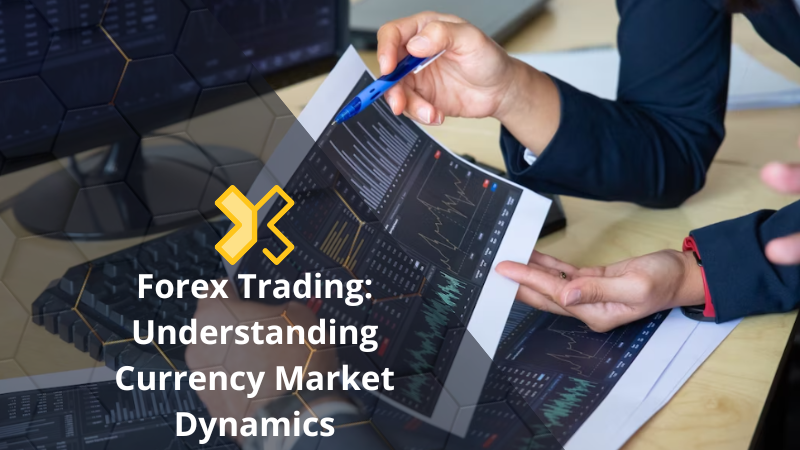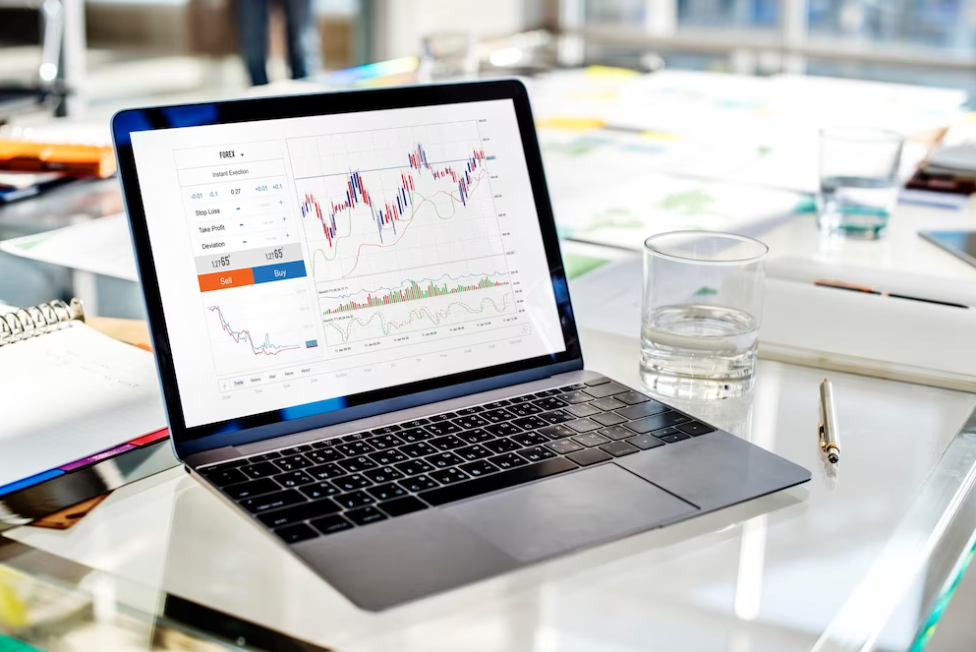
Forex Trading: Understanding Currency Market Dynamics

Forex trading, also known as foreign exchange trading, involves the buying and selling of different currencies. This market operates globally and is the largest financial market in the world. Currency market dynamics are affected by various economic and geopolitical factors, making it a complex and ever-changing market.
Understanding the dynamics of the currency market is essential for anyone looking to trade in forex. It involves knowledge of global events, financial indicators, and currency pair correlations. The forex market is also affected by supply and demand dynamics, making it a market that requires constant analysis and monitoring.

As a forex trader, it is crucial to stay up-to-date with the latest news, trends, and analysis. This will help you make informed decisions and take advantage of market opportunities. In the following sections, we will delve deeper into how forex trading works, effective strategies and tips for success, educational resources for beginners, and the benefits of utilizing forex trading signals.
How Does Forex Trading Work?
Forex trading involves the buying and selling of currencies. The forex market is the largest financial market in the world, with a daily turnover of over $6 trillion. This market operates 24 hours a day, five days a week, across different time zones. The forex market is decentralized, meaning it has no central exchange. Instead, it operates through a network of banks, institutions, and individual traders.
Forex brokers play a vital role in connecting traders to the forex market. These brokers provide trading platforms on which traders can execute trades. To start trading, you need to open an account with a forex broker, deposit funds, and choose your trading platform.
The forex market involves currency trading, with traders speculating on the value of one currency against another. For example, if a trader believes that the euro will appreciate against the US dollar, they can buy euros and sell US dollars. If the euro appreciates as expected, the trader can sell the euros and make a profit.
Types of Forex Trading
There are various types of forex trading strategies, including:
- Day Trading: This involves opening and closing trades within a single trading day.
- Swing Trading: This involves holding trades for a few days to a few weeks, taking advantage of medium-term price movements.
- Position Trading: This involves holding trades for a longer period, taking advantage of long-term price movements.
No matter which type of trading you choose, it's important to develop a sound trading plan and to follow risk management strategies.

"The forex market involves currency trading, with traders speculating on the value of one currency against another."
The forex market can be complex, but with the right knowledge and strategies, a trader can achieve success. In the next section, we will explore effective forex trading strategies and tips.
Effective Forex Trading Strategies and Tips
Forex trading can be a rewarding experience, but it requires careful planning and execution. Here are some effective strategies and tips to help you make the most of your trades:
1. Technical Analysis
Technical analysis can help you identify potential market trends and predict currency price movements. It involves analyzing charts, indicators, and other tools to identify patterns and make informed trading decisions. Some popular technical analysis indicators include moving averages, Bollinger bands, and relative strength index (RSI).
2. Fundamental Analysis
Another approach to forex trading is fundamental analysis, which involves analyzing economic and political events that may affect currency prices. This strategy involves keeping up-to-date with news and events that may have an impact on currency values. For instance, if a country is experiencing an economic recession or political instability, its currency may weaken against other currencies.
3. Risk Management
Risk management is critical to successful forex trading. This involves managing your exposure to risk by setting stop-loss orders and limiting your trades to a predetermined amount of capital. It's also essential to have a well-defined trading plan and stick to it. This can help you avoid impulsive trades based on emotions and make more informed decisions.
4. Demo Trading
Before you start trading with real money, it's a good idea to practice with a demo account. This allows you to test your strategies and get familiar with the trading platform without risking any capital. Demo trading can also help you identify any weaknesses in your trading plan and give you the confidence to execute your trades with real money.
5. Education and Training
Learning about forex trading is critical to your success. There are many educational resources available, including online courses, webinars, and e-books. It's also a good idea to consider a reputable forex broker that offers educational materials and trading tools.
"The key to successful trading is to keep it simple. Stick to your strategies and be patient. Don't let emotions get in the way of making informed decisions."
Following these strategies and tips can help you make better-informed trading decisions and increase your chances of success in the forex market. Remember to always keep up-to-date with market news and events and be prepared to adjust your strategies as needed.
Forex Trading Education: Essential Resources for Beginners
For beginners who are new to forex trading, it can be overwhelming to navigate the various aspects of the market. It’s important to have a solid foundation of knowledge to make informed decisions and avoid costly mistakes. Fortunately, there are many educational resources available to help beginners learn the basics of forex trading.
One of the most popular resources for beginners is online courses. There are many platforms available that offer courses on forex trading, covering topics such as technical analysis, risk management, and trading psychology. Some of these courses are free, while others require a fee.
Another useful resource for beginners is demo trading accounts. Many forex brokers offer demo accounts that allow traders to practice trading without risking any real money. This can be a great way to test out different strategies and get a feel for the market before starting to trade with real money.
Books and ebooks are also a great way to learn about forex trading. There are many books available on the subject, covering everything from the basics to advanced strategies. Some popular titles include “Currency Trading for Dummies” by Brian Dolan and “The Complete Guide to Currency Trading & Investing” by Jamaine Burrell.
- Online courses
- Demo trading accounts
- Books and ebooks
Overall, there are many resources available for beginners to learn about forex trading. It’s important to take the time to educate yourself before starting to trade, as this can help you avoid costly mistakes and increase your chances of success.
Utilizing Forex Trading Signals for Informed Decision-Making

Forex trading signals can assist traders in making informed trading decisions. These signals provide valuable insights into the currency market, enabling traders to make timely and accurate trades.
The Importance of Forex Trading Signals
Forex trading signals are alerts that notify traders of potential trading opportunities. These signals can take a variety of forms, including email notifications, SMS alerts, and pop-up messages in trading platforms. By utilizing trading signals, traders can stay informed of important market developments and make more informed trading decisions. Signals can provide valuable insights into market trends, potential price movements, and other factors that can impact currency values.
Types of Forex Trading Signals
There are several types of forex trading signals that traders can utilize. These include technical indicators, trading robots, and signal services. Technical indicators are mathematical calculations that utilize historical price and volume data to identify potential market trends. Trading robots are automated trading systems that can execute trades based on predefined rules and parameters. Signal services are third-party providers that offer real-time trading signals to subscribers.
Choosing a Forex Trading Signal Provider
When choosing a forex trading signal provider, it is essential to consider factors such as accuracy, reliability, and transparency. Traders should also consider the provider's track record and reputation in the industry. Before subscribing to a signal service, traders should conduct due diligence and research the provider thoroughly. They should also consider the costs associated with the service and whether it fits within their trading budget.
Forex trading signals can enable traders to make more informed trading decisions and increase their chances of success in the currency market. By utilizing various types of trading signals and choosing a reputable provider, traders can gain a competitive edge and achieve their trading goals.
If you want to know other articles similar to Forex Trading: Understanding Currency Market Dynamics you can visit the category FINANCE.
Leave a Reply






It may interest you...